Summer is finally here, and it’s time to get out and enjoy your patio. But this being Canada, you know there’s barely a couple of days between the last frost and the first mosquito bite. It’s natural to want to keep pests out of your garden, but how do you keep them away from your patio? With the help of Brian McCourt, contractor, design expert and co-host of HGTV Canada’s Backyard Builds, we’ve put together 15 natural repellant ideas for the most common pests plaguing your outdoor paradise.

Mosquitos: Turn on the Fan
A gentle breeze does more than just keep you cool on a hot day: mosquitoes don’t bite when it’s windy, so turning on a fan outside makes a great natural repellent.

Various Pests: Essential Oils
Essential oils are a great solution for everything from reducing anxiety to killing bacteria. They can also help repel insects. Citronella is probably the most popular, but lemongrass, sweet orange, lemon eucalyptus and cinnamon can also work. You can make your own repellant by mixing these oils with water and then spraying the solution around your patio.
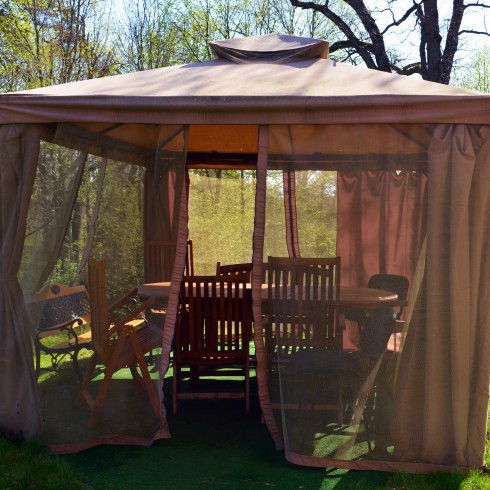
Various Pests: Bug Screen
Bug screens are a convenient way to enjoy the fresh air and view from your patio without being bothered by bugs and small critters. You can install a permanent solution or opt for a portable gazebo. If you choose the latter, you can take it with you camping.

Mosquitos: Lavender Dreams
If you’ve spent a lot of time and effort building a beautiful backyard, there’s nothing more annoying than having little winged pests flying around and ruining the relaxing atmosphere. If mosquitoes are an issue on your patio, you might want to turn to the power of scent to help. Plants like lavender and basil have strong scents that mosquitoes don’t like, so incorporating them into your garden or planting them nearby can help give mosquitoes the boot.
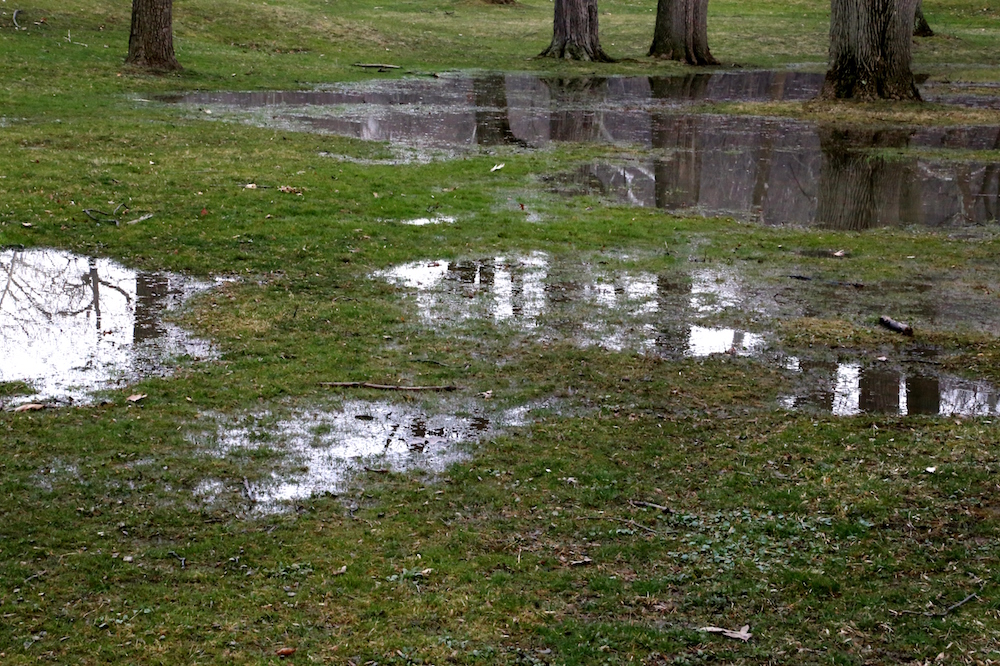
Mosquitos: Drainage Issues
Another way to push mosquitos away from your property is to be mindful of areas that attract them – like standing water. Dealing with drainage issues in your yard is good for your lawn’s health and can help prevent bugs from swarming. Don’t forget about keeping standing water out of things like planters or kids’ outdoor toys in the yard too.
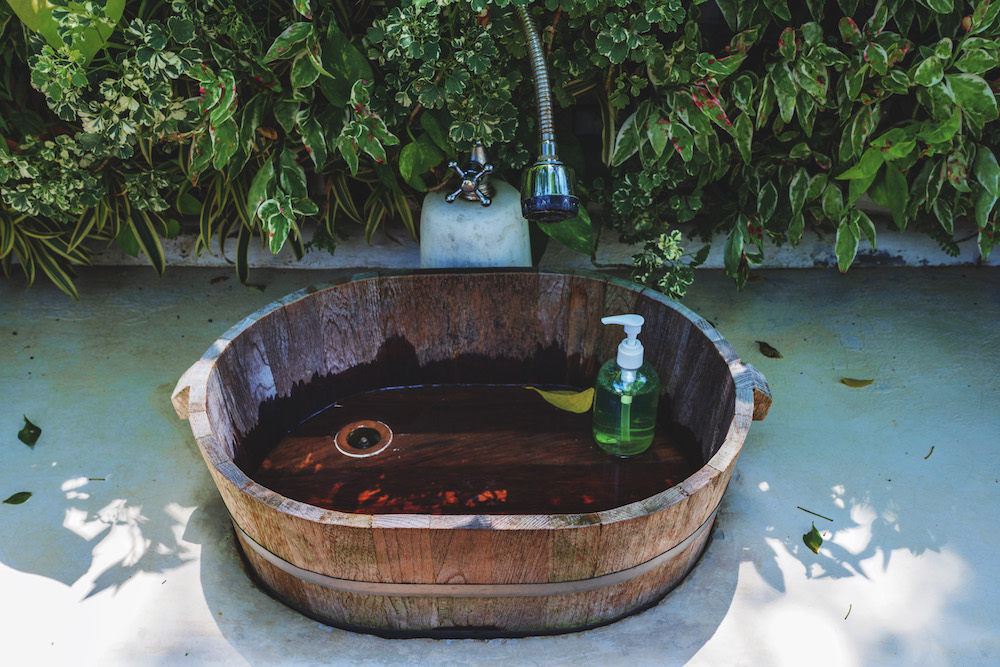
Aphids: Suds Up
Aphids are super common (they look like little white specs on your plants) – and super bad for your patio greenery – because they feed on the nutrient-rich liquids in plants. To control these small sap-sucking bugs on your patio, try spraying plants with dish soap and water: you can learn how to make the mixture at home here.

Aphids: Lemon Aid
If you don’t want to go the soap route to keep aphids away, try giving them a spritz of citrus. Spraying a mixture of real lemon juice and water on plant leaves can help get rid of the pests, too.
Related: 20 Things You Can Clean With a Lemon
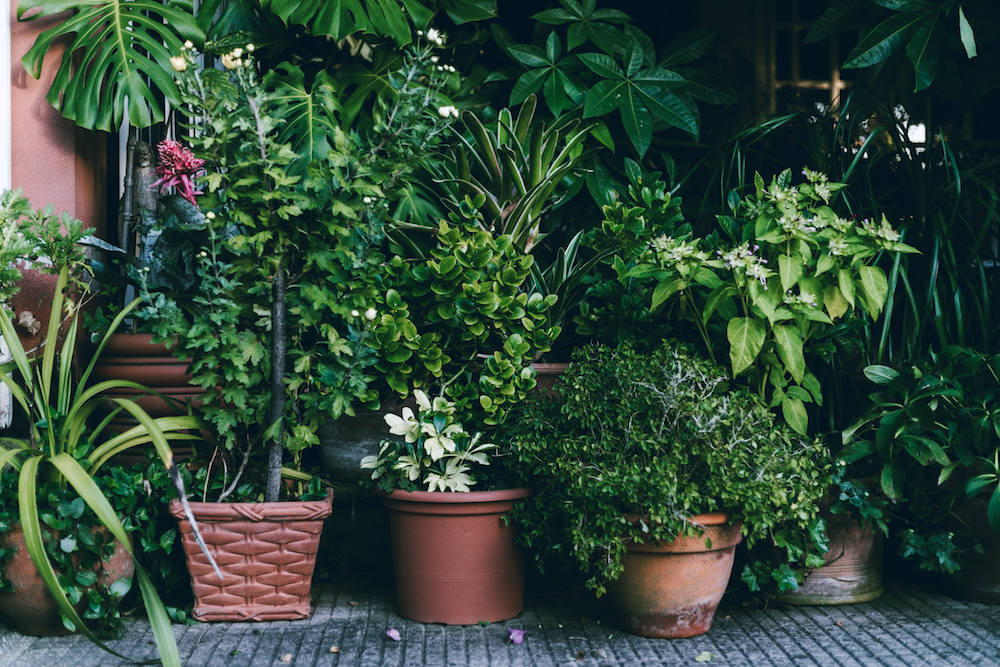
Ants: Minty Fresh
Peppermint can be a good, natural way to keep ants away from your patio. A few drops of peppermint oil in water makes an effective spray to repel ants. Try spritzing a mixture of three drops of peppermint oil in a gallon of water around the outside of planters or garden boxes.
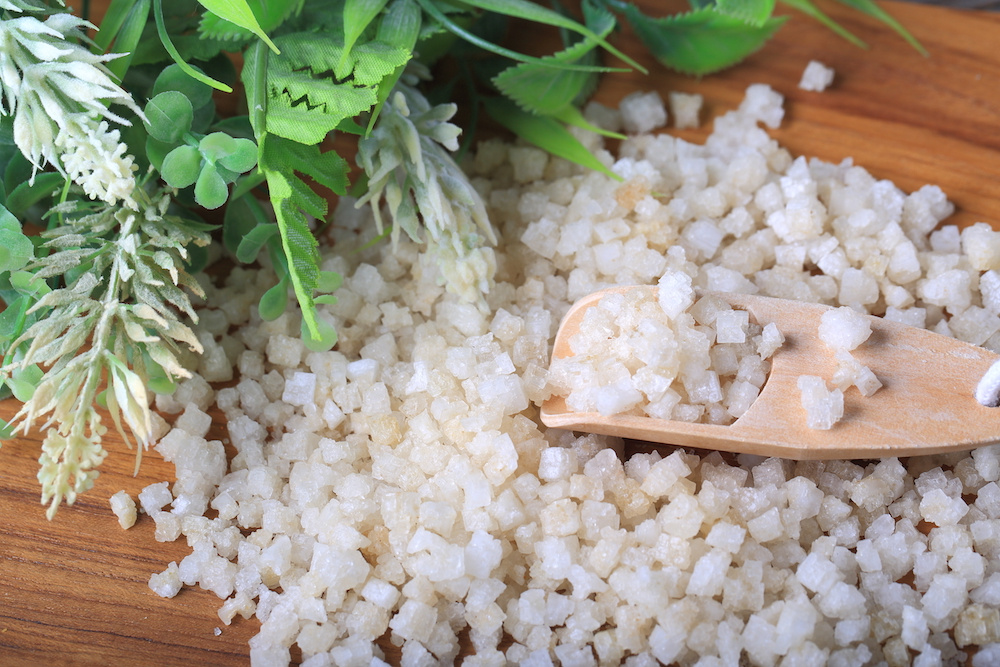
Beetles: A Sprinkle of (Epsom) Salt
Magnesium sulphate – commonly known as Epsom salt – is a natural repellent for beetles in potted plants and around the patio. There are multiple ways to use Epsom salt as a pest deterrent: two common methods are to mix Epsom salt and water to make a spray or sprinkle the dry salts around plants’ bases.
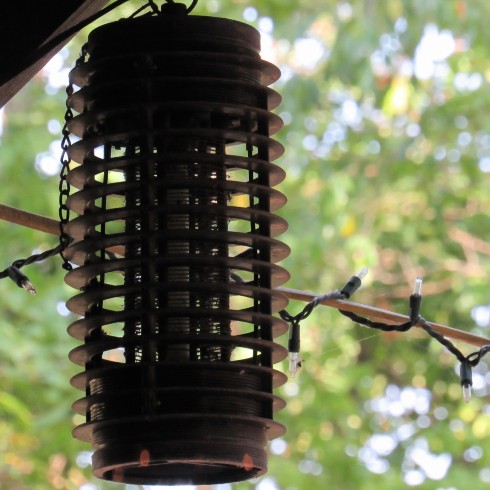
Various Pests: Bug Zapper
Ah yes, the old standby: the bug zapper. But it works! The only issue is the noise of frying bugs (and a slight odour). It’s definitely worth the trade-off.
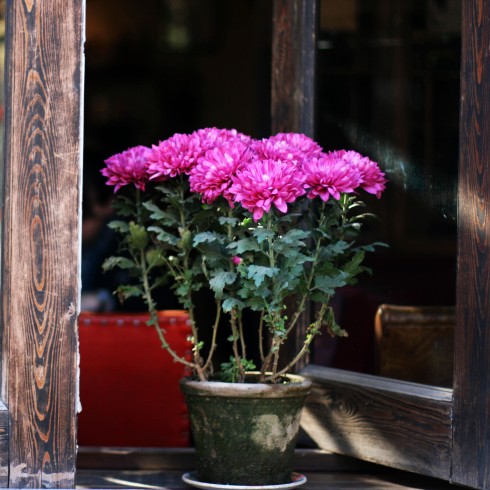
Roaches, Ants and Ticks: Chrysanthemums
Chrysanthemums are an effective and natural bug deterrent for patios. Mums contains pyrethrin, which repels mosquitoes, ants, ticks and even cockroaches. Placing chrysanthemums around your patio helps keep the bugs at bay while adding a splash of colour.
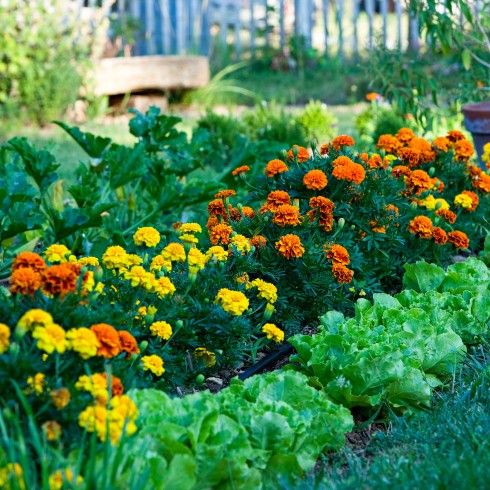
Mosquitos: Marigolds
Planting marigolds around your patio is a natural way to help ward off mosquitos. Marigolds have a scent that mozzies don’t like. And, like mums, they’ll add a bit of colour to your patio.
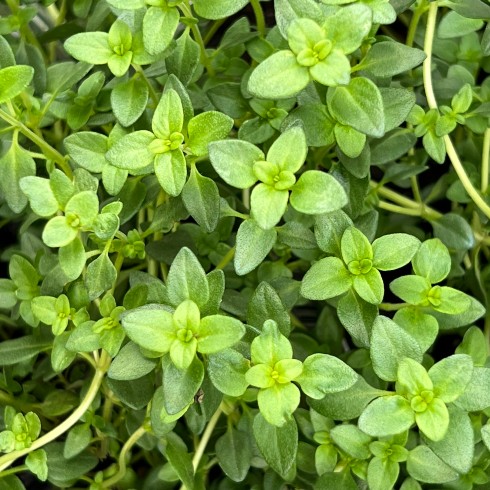
Various Pests: Lemon Thyme
Lemon thyme is another effective natural insect repellent, making it a good choice for keeping bugs away from your patio this summer. Its lemony scent is quite offensive to mosquitoes. Plant a few containers around your outdoor space and enjoy the pleasant aroma while the mosquitoes head off in search of other victims.
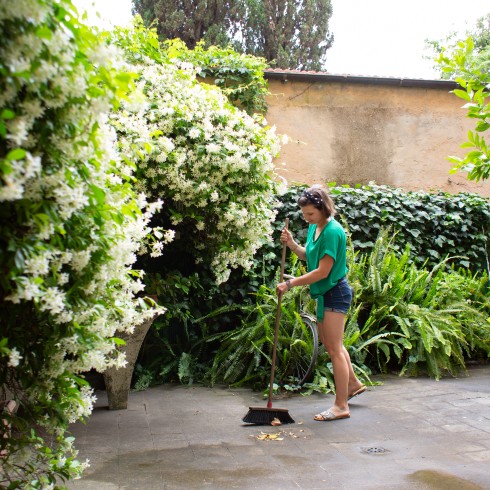
Various Pests: Keep It Clean
Crumbs and spills can attract all kinds of bugs. If you use your patio to entertain, always clean up after meals. Give the area a good sweep and wipe up any spills. It’s also good idea to keep your patio tidy even if you’re not using it.

Various Pests: Change Your Lighting
Bugs are attracted to certain kinds of light. If you’re using regular white bulbs, swap them out for warm or yellow LED lights. These bulbs don’t emit heat or UV light, both of which pull in insects. They’re often marketed as anti-bug bulbs and are highly effective. Dimming them down will increase their effectiveness even more.
HGTV your inbox.
By clicking "SIGN UP” you agree to receive emails from HGTV and accept Corus' Terms of Use and Corus' Privacy Policy.




